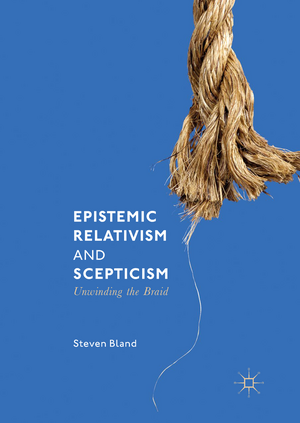Epistemic Relativism and Scepticism: Unwinding the Braid
Autor Steven Blanden Limba Engleză Hardback – 2 aug 2018
| Toate formatele și edițiile | Preț | Express |
|---|---|---|
| Paperback (1) | 383.12 lei 6-8 săpt. | |
| Springer International Publishing – 3 ian 2019 | 383.12 lei 6-8 săpt. | |
| Hardback (1) | 500.42 lei 6-8 săpt. | |
| Springer International Publishing – 2 aug 2018 | 500.42 lei 6-8 săpt. |
Preț: 500.42 lei
Preț vechi: 588.72 lei
-15% Nou
Puncte Express: 751
Preț estimativ în valută:
95.76€ • 99.41$ • 79.85£
95.76€ • 99.41$ • 79.85£
Carte tipărită la comandă
Livrare economică 24 martie-07 aprilie
Preluare comenzi: 021 569.72.76
Specificații
ISBN-13: 9783319946726
ISBN-10: 3319946722
Pagini: 153
Ilustrații: XII, 234 p.
Dimensiuni: 148 x 210 mm
Greutate: 0.45 kg
Ediția:1st ed. 2018
Editura: Springer International Publishing
Colecția Palgrave Macmillan
Locul publicării:Cham, Switzerland
ISBN-10: 3319946722
Pagini: 153
Ilustrații: XII, 234 p.
Dimensiuni: 148 x 210 mm
Greutate: 0.45 kg
Ediția:1st ed. 2018
Editura: Springer International Publishing
Colecția Palgrave Macmillan
Locul publicării:Cham, Switzerland
Cuprins
Chapter 1: Introduction.- Chapter 2: The Principal Argument for Epistemic Relativism.- Chapter 3: Epistemic Relativism in the Analytic Tradition.- Chapter 4: Foundationalism and Coherentism.- Chapter 5: Externalism.- Chapter 6: Particularism and Methodism.- Chapter 7: The Charge of Incoherence.- Chapter 8: The Wittgensteinian Position.- Chapter 9: A Dialectical Strategy.- Chapter 10: Conclusions.
Notă biografică
Steven Bland is Associate Professor of Philosophy at Huron University College at Western University, Ontario, Canada. His work focuses on foundational issues in epistemology, the philosophy of science, and early analytic philosophy.
Textul de pe ultima copertă
This book confronts the threats of epistemic relativism and Pyrrhonian scepticism to analytic philosophy. Epistemic relativists reject absolute notions of knowledge and justification, while sceptics claim that knowledge and justification of any kind are unattainable. If either of these views is correct, then there can be no objective basis for thinking that one set of methods does a better job of delivering accurate information than any other set of methods. Philosophers have generally sought to resist these threats by responding to the argument that seems to motivate both positions: the Agrippan trilemma. Steven Bland argues that this is a mistaken strategy. He surveys the most influential responses to the Agrippan trilemma, and shows that none of them succeeds in undermining epistemic relativism. Bland also offers a new, dialectical strategy of challenging epistemic relativism by uncovering how epistemic methods depend on one another for their applications. By means of this novel analysis, the book concludes that there are principled reasons to prefer naturalistic to non-naturalistic methods, even if these reasons do little to ease the threat of scepticism.
Caracteristici
Introduces a new strategy for resisting epistemic relativism Written in an accessible style Explores much of the recent scholarship on epistemic relativism
